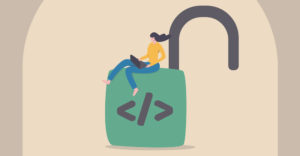
We can learn some lessons from reality TV. For instance, many disputes can be settled without lawyers. If your brother-in-law owes you money or your neighbor’s tree drops fruit in your pool, you can simply vote them off the island. Or fire them. Either way, working it out on your own is a cheaper alternative than litigation.
Unless there is a desire to change the law, litigation typically occurs only when there is a large enough gap between two parties. Otherwise, they settle. Reasonable lawyers on each side explain the law and predict which version of the facts might get adopted. From there, the parties close the gap. Of course, if the dispute rests on a disagreement over interpretation or changing a law, there is no substitute for a judicial ruling.
Unlike reality TV, public forums are not the best way to resolve business disputes. Take the case of Furthermore.com and Miro International, known as the “Mambo” dispute. Their public attempt at dispute resolution gets them nowhere. But it is entertaining for legal observers, because it involves more issues than the questions on a law school exam.
Hey Mambo
The Mambo dispute involves Miro International, an Australian company that holds the copyrights to the Mambo code and hosts the Mambo open-source project and the Mambo Development Team. The Mambo Development Team includes developers from around the world, including Emir Sakic from Stockholm, Sweden.
Literati Group is a Chicago company that operates the Furthermore.com Web site. Brian Connolly is a founder of Literati Group, which he says contracted with Sakic to write some code for the Furthermore.com site. Connolly says the contract transferred copyright to Literati. Connolly asserts that Sakic subsequently provided that code to the Mambo Team without Literati’s consent, and it was included in the Mambo distribution.
According to Sakic, there was no signed agreement. He says what he provided was a modification of Mambo code comprising nine lines of code, and not a derivative work of what was provided to Literati.
Did Sakic create a derivative work of Literati’s code? Did Sakic start with something that Literati does not fully own and take Literati’s code over to Mambo?
According to Miro, it is not involved because this is a dispute between Literati and Sakic. Miro points out that Connolly waited more than a year to bring this up. Since the code in question is a derivative work of another work licensed only under the GPL, the code in question must be licensed under the GPL. Miro also points out that Literati itself distributed versions of Mambo with the accused code through its Web site.
Law School Exams
Like any law student answering a question on a law school exam, let’s examine the facts and determine the applicable issues.
For example, does a contract exist? Sakic claims there was no signed contract. Connolly produced an e-mail from Sakic with terms of an agreement. The facts indicate there might have been a written agreement meeting the requirements of a contract and of a copyright assignment, but without a copyright assignment or a determination of a work for hire, Sakic would still own the code he developed.
The next issue is whose contract and copyright laws apply? Literati is in the U.S. and Sakic is in Sweden. The e-mail originated in the U.S. The rules for copyright assignment vary from country to country. This could be messy all by itself.
Another issue is if the code in question is copyrightable. If it was indeed only nine lines of code and is the only way to implement a function, then it is probably not copyrightable. If it is just one or many ways to express an implementation of the function, then Sakic could have implemented the same function for Mambo using a different expression, which would not be copyright infringement.
Finally, Miro says the dispute doesn’t involve them. Wrong. Even if it did take 366 days for Literati to complain, that doesn’t help Miro because copyright infringement is an ongoing infringement each time a copy is made.
Important Open-Source Issues
Beyond the standard law school questions, the Mambo dispute involves some important open-source issues.
First, there is the issue of asserting copyright rights to a derivative work derived from someone else’s GPL-ed code.
It might be that Sakic created code for Literati that was derived from Mambo code, and Mambo code is only licensed under the GPL by its copyright holder, which appears to be Miro. If that is true, then distributing the Literati code would require a license from Mambo since it is a derivative work, and the license from Mambo requires that Literati distribute its code under the GPL if it distributes it at all. To assume that one is free from suit by Literati under these facts is sloppy logic.
If a licensor creates a derivative work that is only licensed under the GPL, and only distributes that derivative work with a proprietary license that is incompatible with the GPL, a recipient of the derivative work that uses the derivative work in violation of the proprietary license is liable for infringement nonetheless.
The recipient can complain that the licensor is obligated to license the derivative work under the GPL but has not done so, but that is not a defense. If the licensor violated the rights of the original developer by exceeding the rights granted in the GPL, that is a matter between the original developer and the licensor.
Second, Miro claims that Literati distributed Mambo code containing the disputed code. Connolly disputes this. What happens when someone inadvertently licenses their own code under a license they didn’t intend to use? This is the million dollar open-source question.
Clear Intent
Let’s assume there was clear intent to distribute code under the GPL, but without knowledge that someone else had included code that was not intended to be distributed under the GPL. SCO has this particular problem.
This issue cannot be resolved cleanly without lawyers and judges. Settlement among the parties does not make law, nor does mediation or arbitration. Until a court rules on a case or the legislative or executive branch provides new law on the subject, the issue will remain unresolved.
Until a court clearly rules that one can have intent to license a code base yet not have intent to license code that was in that code base without the licensor being fully aware of it, caution is advised.
For now, the court would have to side with the licensees because to do otherwise would create immense uncertainty. In effect, a burden on the licensor to know what they are licensing before they license it is much more manageable than a burden on the licensees to determine — for each snippet of code — whether the licensor actually intended to license it.
Mambo Lessons
When contracting for code development, get a formal agreement in place. Know where your developer is getting their code and make it clear whether the developer can use someone else’s code. This way, there is a clear breach of contract if the code is not entirely the work of the developer.
Finally, if your business model relies on proprietary licenses and you redistribute the GPL-ed code of others, make sure your proprietary code is not included.
It’s too bad that the players in the Mambo dispute can’t just vote each other off the island. In this case, the further this goes, the more they will need legal counsel and the courts to decide who wins.
Phil Albert, a LinuxInsider columnist, is a patent attorney and partner with the San Francisco office of the intellectual property law firm Townsend and Townsend and Crew LLP.











































